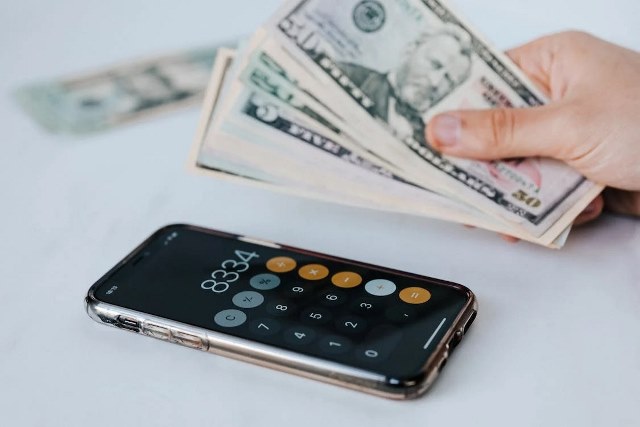Saving money is an invaluable financial habit, offering a financial ‘backstop’ for unexpected events and giving you peace of mind and financial security. Regrettably, 10% of US adults don’t have savings, while 39% have fewer savings, according to a Bankrate Survey.
The top reasons for not saving money include overwhelming expenses, lack of financial discipline, debt, and inadequate income.
Regardless of the excuse for not saving, you can turn over a new leaf and save money to become financially stable and get a safety cushion for life’s uncertainties.
Whether you want to create an emergency fund, buy an asset, or start a business, these eleven clever ways to save money will go a long way to help you achieve your financial goals.
1. Start a Money-Saving Hobby
Although hobbies are fun, relieve stress, and enhance physical and mental health, they can be costly. From equipment to gadgets, and membership fees, hobbies can hurt your finances and thwart saving efforts. Luckily, some hobbies are budget friendly and save money in the long term. Here are some examples.
- Cooking
- Sewing, crocheting, and knitting
- Baking
- Car maintenance
- Fixing things/ DIY
- Home brewing
- Flipping
Cooking or baking, for instance, is an excellent money-saving hobby since you spend less on takeouts and dine-outs. Similarly, learning gardening gives you a sense of accomplishment, and you don’t hire a gardener. Other hobbies such as bird watching, playing soccer, reading, doing yoga, and volunteering may not save money but replace costly hobbies like shopping and golf.
2. Invest in Crypto

In the last few years, crypto has gained prominence among investors and savers for good reasons. It offers inflation protection, rapid transactional speed, uncompromised security, and portfolio diversification with astronomical returns. Consequently, crypto is a lucrative save money challenge for new and seasoned savers.
Many ask whether they should keep their savings in the bank or invest in crypto. The answer depends on a person’s risk tolerance, investment objectives, and portfolio. Crypto is a good choice for savers who are risk-takers, have long-term investment goals, and have a diversified portfolio.
However, since crypto is highly volatile, financial advisors contend that one should not invest more than they can afford to lose.
3. Consider Bulk Buying

If you have plenty of storage space, consider bulk-buying groceries to leverage economies of scale and lower per-unit costs. Bulk grocery shopping is the best place to save money since it accounts for many home expenses.
You can purchase grains, beans, meats, diapers, paper towels, dried fruit, pet food, cooking oil, storage products, and laundry detergent in bulk.
Nevertheless, while buying in bulk can save you money, it can become expensive, wasting money and food. Below are some best practices to get the most out of bulk buying.
- Stick to your budget
- Plan meals before shopping
- Use coupons to maximize savings
- Only buy necessities and items you regularly use
- Check per unit price to calculate savings
- Look for bulk food-buying opportunities such as sales and promotions
- Buy in bulk with friends and split
- Check expiration dates for perishables
- Keep an inventory of what you have before shopping
4. Pay Off Your Debt

Paying off your debts is costly now but saves you money in the long term. Also, you divert your entire premium to savings once you clear your loans. Here are a few best practices for clearing balances and enjoying a debt-free life.
- First, pay more than the minimum to clear the debt faster. You can do this by looking for extra income and money.
- Second, consolidate multiple debts for more manageable payments and lower interests. Alternatively, start with the debt with the biggest interest rate to get rid of the most expensive debt first.
- Third, reduce your expenditure and use your savings for the debt. Fourth, manage spending habits to avoid additional debt.
5. Save on Utilities
With the surging inflation and high fuel costs, households increasingly pay more for utilities –approximately $429.33 per month. Utilities, from water to electricity and sewer, promote health and safety, foster well-being, and maintain life quality.
While utilities are necessities, they’re easy and effective ways to reduce utility bills and save money. Here are some of them.
- Get an energy audit
- Purchase energy-efficient appliances
- Install a smart thermostat
- Weatherstrip doors and windows
- Take shorter showers
- Fix leaky ductwork
- Keep your fridge full
- Turn down your water heater
6. Use the Envelope System
Dave Ramsey’s envelope system is a tremendous tactic for budgeting and saving money. As the name implies, it uses envelopes to plan finances. Start by determining your monthly expenses and sorting them into categories. The categories can be as broad or specific as needed and may include rent, groceries, entertainment, gas, personal care, and car maintenance.
Then, create an envelope for each category and allocate a specific amount. An excellent way to allocate money to your expenses is using the 50/30/20 rule, whereby 50% of your paycheck goes to necessities, 30% to wants, and 20% to savings. For instance, if you want to eat out, you will use the money in the entertainment envelope. Any unused funds go to savings.
With discipline, honesty, and commitment, this method can be your ticket to attaining your financial goals. It ensures your account for savings in your monthly budget and prevents overspending and impulse buying. You can digitize the approach using apps and spreadsheets if you don’t want cash.
7. Break Off Expensive Habits

Some habits are costly and dent your wallet tremendously. Poor eating habits, for instance, raise your food budget and increase the risk of obesity, heart conditions, and stroke.
Also, they improve health and life insurance premiums. These habits can come in the way of attaining goals like buying a home, taking a vacation, and retiring early. They include;
- Drinking –alcohol costs American households $435 annually
- Wasting food
- Procrastination
- Fast foods and coffee
- Buying lottery tickets
- Smoking
- Careless driving
- ‘Therapeutic’ shopping
Consider replacing these habits with cost-effective alternatives for a healthy and happy bank account. For instance, you can forgo gym membership and exercise at home, run in the park, or buy cheap workout equipment. Similarly, switch drinking alcohol with water and other healthy drinks like milk and fruit juices –your health and credit card will thank you.
8. Join a Buy Nothing Group
In the current digital age, countless groups, especially on social media, target your wallet. You can ditch money-spending groups for buy-nothing groups. According to the Wall Street Journal, buy nothing groups are an antidote to inflation and boast millions of members.
As the name suggests, buy nothing groups allow people to dispose of unwanted things, benefiting others who want these items. They encourage a gift economy, lessen excessive production –and pollution, reduce clutter, and develop community connections.
You may be wondering, how do these groups save you money? First, you may get numerous free things, including bedding, clothes, toys, garden tools, artwork, food, and diapers. Second, you give away things you don’t need, which may incur a disposal cost. The feeling of giving away items to a needy person or family is priceless.
9. Find Fun Side Gigs
An excellent way to save money is to find fun side gigs for weekends and when not occupied. Whether you want to offset your student loan quickly or return to school, a side gig offers extra income and professional development and builds your portfolio. Depending on your skills, available time, and preferences, enjoyable side gigs include;
- Delivering food and groceries
- Becoming a photographer
- Taking surveys
- Teaching English
- Reselling thrift items
- Rent a room for Airbnb
- Babysitting
- Running errands for people
- Doing yard work
- Pet sitting or walking
- Event planning
Some side gigs have many benefits, including employee discounts and health covers. If you work at an apparel store, you can use employee discounts to purchase the latest fashions cheaply. Other workplaces like concert venues and zoos allow you to enjoy events without hefty ticket costs.
10. Try Thrift Shopping

Shopping in thrift stores saves money and the planet and reduces waste. You get unique, high-quality items, promote sustainable fashion, and reduce your carbon footprint. Thrift stores are prominent for incredible clothing, furniture, holiday décor, tools, toys, appliances, and books. Thrifting enthusiasts buy designer bags and purses from thrift stores and save enormously.
If you don’t like buying thrift clothes, opt for brand-new items with tags and pay a fraction of their original cost. One man’s trash is another’s treasure –you can get some amazing pieces that only need a new life to look exquisite.
11. Utilize Digital Saving Options
Digital saving options are suitable for seasoned savers and those starting. They are beneficial for spenders who would like to hide money from themselves. These saving options allow you to stay organized, save time, and track progress.
Some apps like Digit automates saving by transferring a predetermined amount from your checking account to a savings account, saving you time and effort.
There are numerous online platforms for saving money, so you choose the best one based on your needs, preferences, and financial goals. When choosing a saving option, consider the following factors.
- Incentives –cash back, discounts, coupons
- Seamless transactions such as auto pay
- Loyalty programs
- Security
- Privacy and data protection
Summary
While saving is a simple concept, it can be maddeningly challenging. Making small changes to your daily spending and setting apart some of your earnings can propel your journey to financial freedom and security and help you attain short and long-term financial goals.
Use the tips outlined above and become a clever saver today!


 From Pennies To Prosperity: 10 Best Ways To Save Money for Your Children
From Pennies To Prosperity: 10 Best Ways To Save Money for Your Children  7 Smart Saving Strategies for a Better Life
7 Smart Saving Strategies for a Better Life 